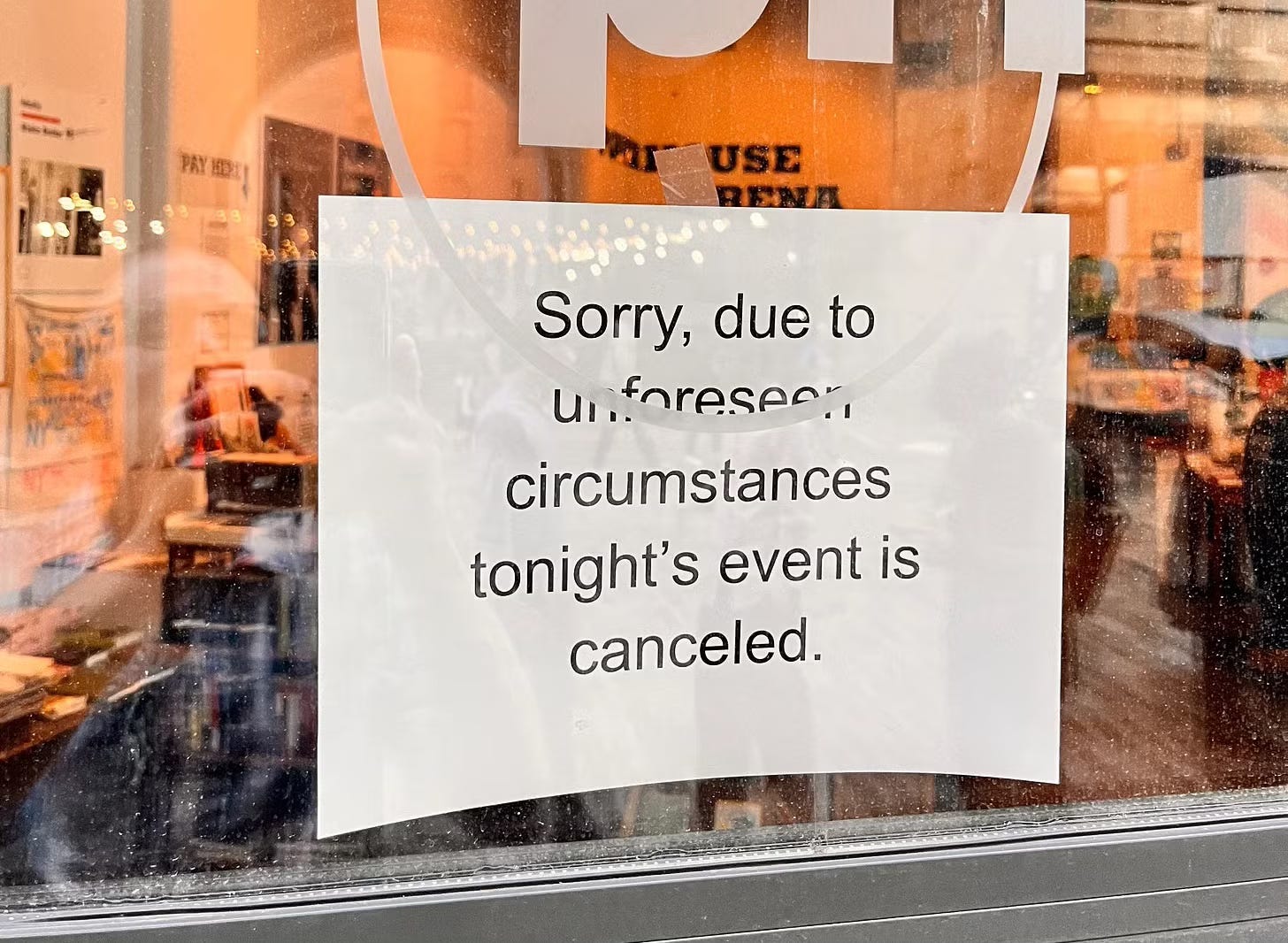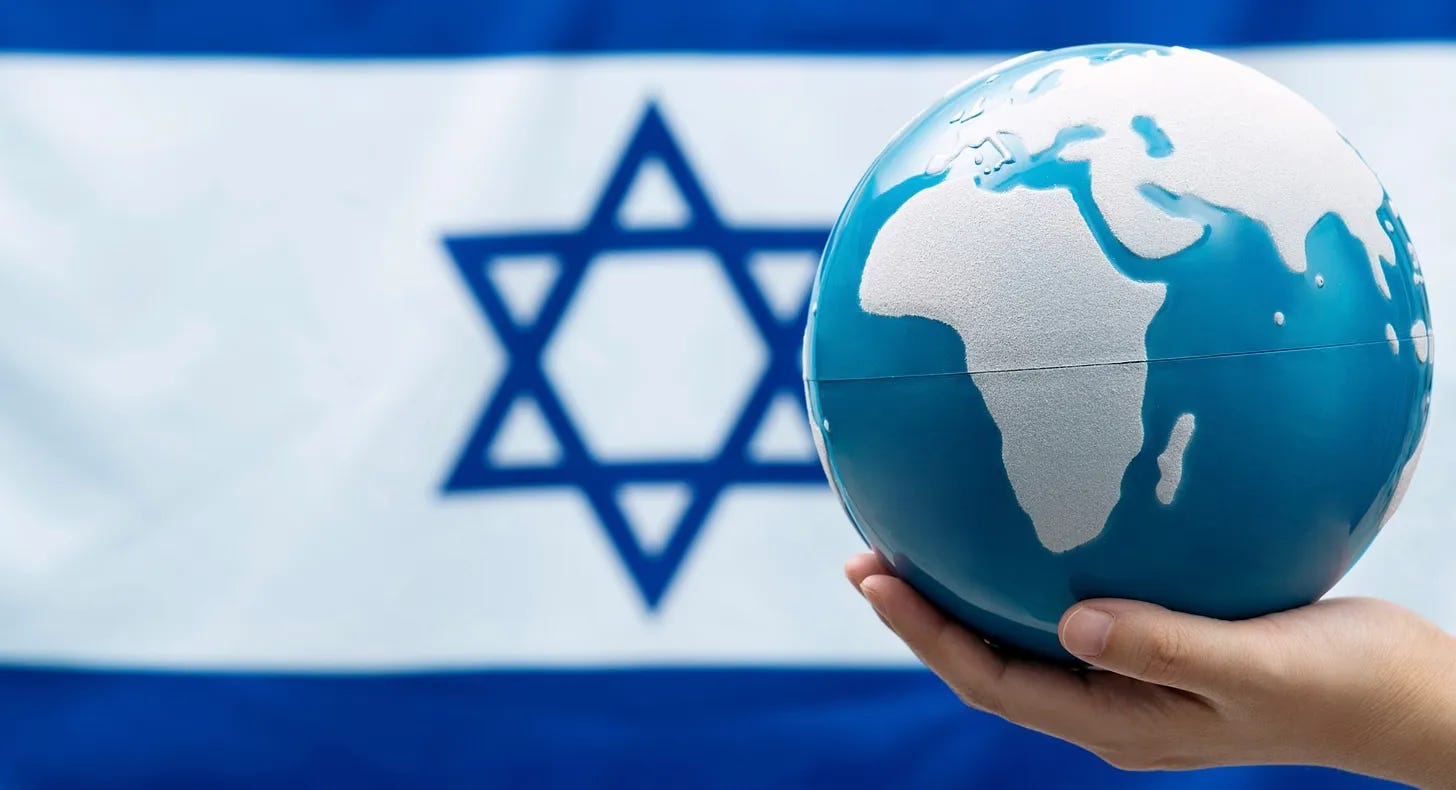The Cancellation of Jewish Voices
"In one case, a new publishing house which promised inclusion, intersectionality, and a bunch of other buzzwords — rejected a Jewish author’s memoir with a curt: 'We don’t publish Zionist books.'"
By Debbie Weiss
In 2018 at the age of 54, I went back to school at a small Northern California college to earn a Master of Fine Arts in creative writing. Immersed in writing my memoir, I wanted to be with others who were going through the same thing. I was also desperate to put on real clothes and get out of the house.
Overall, going back to school was a great experience, but I also felt like I was outside of the target audience. We studied authors of different ethnicities and some who qualified as “other voices,” but none of them were Jewish. When I commented in my classes, I was sometimes admonished by my professors and a few younger students to consider how “privileged” I was.
I didn’t mention it then, but those accusations felt like a real put-down. These people didn’t know me. They just saw a middle-aged blonde lady in flowered Vans who did yoga stretches during break. Sitting on hard wooden chairs for four-hour workshops can be uncomfortable for those of us over 50. Was I so privileged just because I was older and Caucasian?
I lost my mother when I was 10 and my partner of 32 years when I was 50. Going back further, my great-grandparents were refugees from Hungary. My grandparents experienced antisemitism when they tried to establish a heating and air conditioning business in New York and to create a life that allowed my father to be the first person in our family to go to college. When my father was a young man who wanted to work at IBM, they told him firms like that didn’t hire “our kind.”
My grad school experiences came back to me while reading several Facebook posts by Jewish authors about publishers who are refusing to publish their work. In one particularly egregious example, a new publishing house which promised inclusion, intersectionality, and a bunch of other buzzwords — rejected a Jewish author’s memoir with a curt, “We don’t publish Zionist books.”
As stated in The New York Post, “The Gaza War has become a war on Jewish books and authors.” The Times of Israel suggested that “the mindset of college students to de-platform has migrated past campuses into the broader world.” This viewpoint isn’t limited to the United States; an article in The Telegraph said that half of British publishers are refusing to take books by authors who are identifiably Jewish.
Or, as James Kirchick said in an editorial in The New York Times, “[A] litmus test has emerged across wide swaths of the literary world effectively excluding Jews from full participation unless they denounce Israel.”
Of all of this behavior, The Spectator asked the following question/assertion:
“Is this activism or bigotry? To treat one nation — and one nation alone — as so immoral, foul, violent and despicable that all interaction with it must cease surely belongs more to the realm of prejudice than politics, of emotionalism more than rationalism.”
It feels like many outlets are using the October 7 attacks as an excuse to silence Jewish voices. And not only with respect to Israel, but for anything with a Jewish theme or for simply being Jewish in general. I suppose that this virulent, widespread antisemitism has always existed, it just needed an excuse to bring it to the forefront.

I’ve found a phrase for what we’re experiencing: traumatic invalidation. It’s defined as the chronic or extreme denial of an individual’s significant private experiences or reactions, often by influential figures or groups. It is the state of feeling dehumanized by those from whom we expect support and care.
Traumatic invalidation is discussed at length in a paper by Miri Bar-Halpern and Jaclyn Wolfman entitled “Traumatic invalidation in the Jewish Community after October 7.” The authors state that rather than being met with compassion and care after the attacks, many Jews instead received:
“a stunning mix of silence, blaming, excluding, and even outright denying the atrocities of October 7, along with any emotional pain stemming from them.”
They state that due to the ongoing war in the Middle East and the worldwide rise of antisemitism, Jews will likely continue to experience invalidation. They also suggest that having our experiences invalidated creates trauma which can result in an existential crisis. Overcoming traumatic invalidation involves restoring our sense of humanity by recognizing our validity and joining with others who recognize our pain and humanity.
I’ve been wondering why our experiences as Jews, and indeed our very ethnicity, have been so denigrated in the wake of the attacks. Is the problem that Jews, at 2.4 percent of the U.S. population, are overly represented in our accomplishments? A higher percentage of Jewish Americans have college or postgraduate degrees than the general population. We’re more strongly represented in the professions and tend to have higher household incomes and homeownership rates.
So, are we too successful to merit compassion?
This all comes back to the idea of privilege. On a personal level, I hated speaking up in grad school and feeling like whatever I said was automatically suspect. It seemed like the efforts of my Jewish family, who overcame so much so that I could be there, were somehow less than those of any other struggling family who’d sought refuge in the United States. My own losses were irrelevant; those professors just saw a bougie white lady they assumed to be ignorant.
Jewish culture has apparently been cancelled and, worse, we’re supposed to believe we somehow earned this invalidation. I can think of no other ethnic group expected to be apologists in response to terrorism. Our voices are being silenced.
We have every right to be angry and object. Without excuse or qualification.
DEBBIE WEISS is a former lawyer, essayist, and the author of Available As Is: A Midlife Widow's Search for Love.
From unpacking history and politics to navigating the nuances of family and personal relationships to finding the human angle on sports and entertainment — plus our unsparing take on what’s happening in the Jewish world — the canvas at JEWDICIOUS is limitless! JOIN US!!






I feel this. It is horrible and so heartbreaking to watch.
Thomas Sowell has mentioned that the only thing Jews can do to end Antisemitism is to fail. As long as Jews succeed, antisemitism will continue.
Israel's amazing success, in economy (GDP 60% larger than Iran), high technology, science (6 scientists working in Israeli universities have won the Nobel Prize in Chemistry since 2000), desalination, pharmaceuticals, agriculture, advanced materials imply the root cause of antisemitism will persist.
19% of all Nobel Prizes in Chemistry and 25% of all Nobel Prizes in both Physics and Medicine were awarded to Jewish scientists.
https://en.m.wikipedia.org/wiki/List_of_Jewish_Nobel_laureates